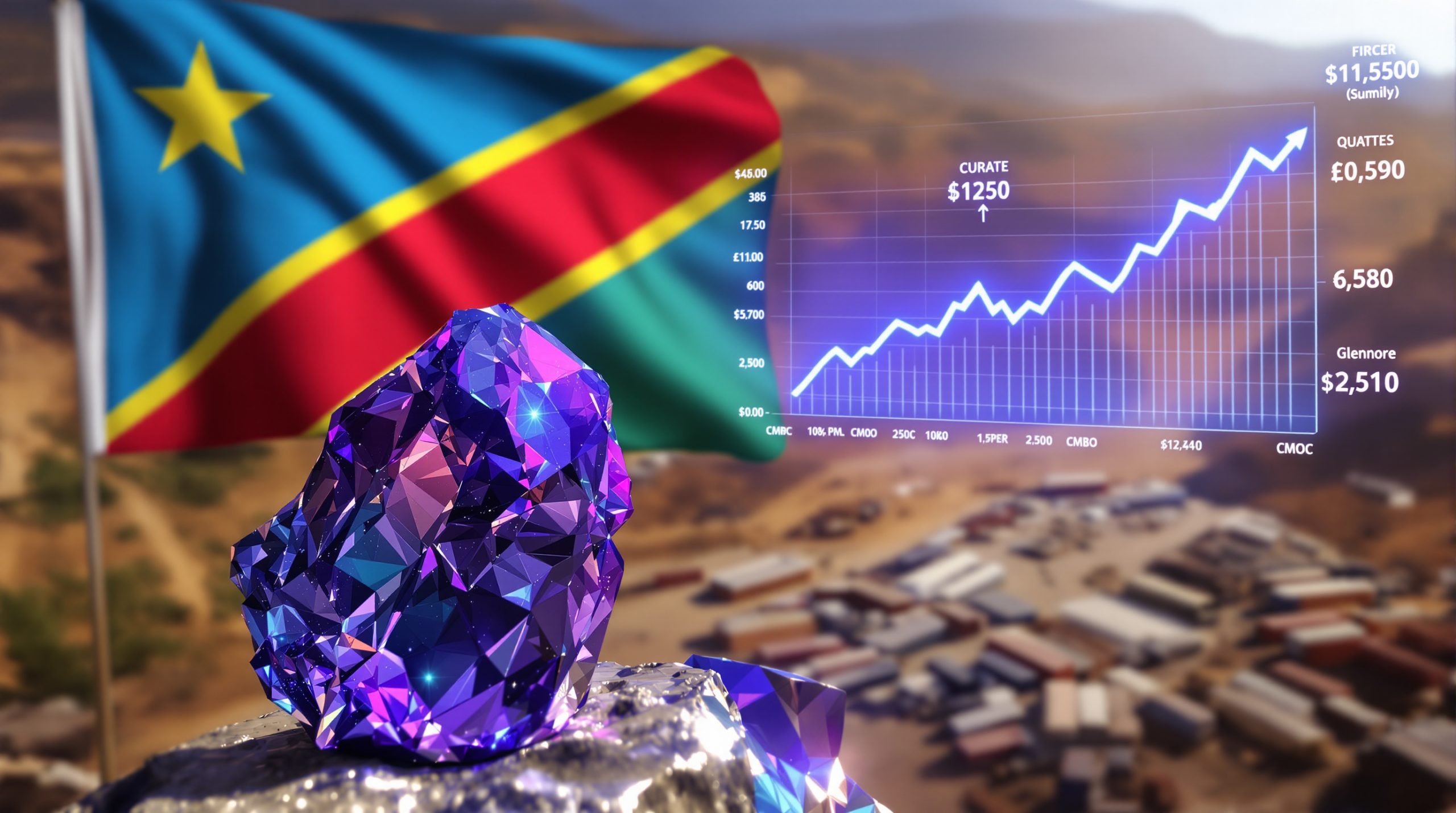Understanding Niger's Nationalization of the Somair Uranium Mine
Niger's recent nationalization of the Somair uranium mine marks a significant shift in the country's approach to managing its natural resources. This development has implications not only for Niger's economy but also for global uranium markets and international investment relations. Let's explore what this nationalization means, why it's happening, and the potential consequences.
What is the Somair Uranium Mine Nationalization?
Background of the Somair Mine
Located in the uranium-rich regions of northern Niger, the Somair (Société des Mines de l'Aïr) uranium mine has been a cornerstone of the country's mining sector since its inception in 1971. This facility has positioned Niger as the world's seventh-largest uranium producer, playing a critical role in the global nuclear fuel supply chain.
Before the nationalization of Orano-operated Somair mine, French nuclear company Orano (formerly Areva) held a controlling 63% stake in the mine, with the Niger government owning the remaining 37%. This ownership structure had remained relatively stable for decades, making the recent nationalization particularly noteworthy.
The mine employs hundreds of local workers and has historically been one of Niger's most significant sources of export revenue and foreign exchange. Its uranium output primarily supplies nuclear power plants in Europe and other international markets.
Timeline of Recent Events
The nationalization process has unfolded through several key events:
-
December 2024: Niger's government initially took control of the Somair mine's operations, signaling a major shift in the country's resource management approach.
-
May 2025: Security forces conducted raids on Orano's affiliate companies in Niger, seizing electronic equipment and questioning executive leaders. This prompted Orano to initiate legal action against the Niger government.
-
June 2025: Niger's military government officially announced plans to fully nationalize the operation, completing the transfer of ownership from Orano to the state.
These developments represent a dramatic reversal of the decades-long partnership between Niger and Orano, creating uncertainty about the future of uranium mining in the country.
Why is Niger Nationalizing the Somair Mine?
Government Allegations Against Orano
Niger's government has leveled serious accusations against Orano regarding the distribution of benefits from the mine's operations. According to official statements, the government claims that Orano has taken approximately 86.3% of the mine's production since operations began in 1971.
"This represents decades of pillaging organised for the benefit of foreign interests," stated a government spokesperson in the nationalization announcement. The military government has framed the nationalization as a necessary step to reclaim sovereignty over the nation's natural resources and ensure that mining revenues benefit Niger's citizens rather than foreign corporations.
These allegations form part of a broader narrative that foreign mining companies have historically extracted disproportionate value from Niger's mineral wealth while leaving the country itself in poverty despite its significant resource endowment.
Worker Union Support
The National Union of Niger Mine Workers (SYNTRAMIN) has publicly backed the nationalisation of the Somair mine. Union representatives described the move as a "sovereign decision" by Niger's military leadership that aligns with workers' interests.
In public statements, SYNTRAMIN has emphasized that mining operations would continue uninterrupted during and after the transition to full state ownership. The union has also echoed government sentiments, condemning what they characterized as decades of exploitation by foreign interests.
"The workers stand firmly behind this decision, which will ensure that Niger's uranium wealth finally benefits its own citizens," a SYNTRAMIN spokesperson stated. This labor support provides the government with crucial backing from key stakeholders in the mining sector.
How Does This Fit Into Regional Resource Nationalism?
West African Resource Control Trends
Niger's nationalization of the Somair mine aligns with a broader trend of resource nationalism across West Africa. Several countries in the region have recently taken steps to increase state control over natural resources and renegotiate terms with foreign mining companies.
This shift reflects growing dissatisfaction with traditional extractive industry agreements that many West African governments now view as disadvantageous. Countries including Guinea, Mali, and Burkina Faso have all implemented various measures to enhance local benefits from mining operations in recent years.
The trend represents a significant challenge to international mining companies that have historically dominated resource extraction in the region. These companies now face increasing pressure to offer more favorable terms to host governments or risk losing access to valuable mineral deposits.
Political Context
The nationalization must be understood within Niger's recent political context. The current government came to power through a military coup in July 2023, when the military overthrew the democratically elected president Mohamed Bazoum.
This change in leadership has coincided with a significant shift in Niger's foreign policy orientation, including strained relations with traditional Western partners such as France. The nationalization of the Somair mine represents one of the most consequential economic policy decisions made by the military government since taking power.
The move appears to be part of a broader strategy to consolidate control over key economic assets while projecting an image of national sovereignty and independence from foreign influence. Such resource nationalism often resonates strongly with domestic audiences, potentially helping the military government build popular support.
What Are the Legal Implications?
Orano's Response and Legal Challenges
Orano has publicly opposed Niger's nationalization plan, describing it as "unilateral" and "contrary to the mine's operating agreements." The company initiated legal action in May 2025 following the security forces' raids on its facilities and detention of company officials.
In response to the formal nationalization announcement, Orano indicated it is considering additional legal remedies beyond the existing lawsuit. These could potentially include international arbitration under bilateral investment treaties or other legal mechanisms designed to protect foreign investments.
Interestingly, Orano has not directly responded to the specific allegations regarding the 86.3% production share claimed by Niger's government. The company has instead focused its public statements on the procedural aspects of the nationalization, which it maintains violates existing agreements.
International Law Considerations
The nationalization raises several important questions under international investment law. Bilateral investment treaties between Niger and France likely contain provisions regarding expropriation of assets and fair compensation requirements.
Under most international legal standards, countries retain the sovereign right to nationalize foreign-owned assets, but they must typically provide "prompt, adequate, and effective compensation" to the affected investors. The determination of appropriate compensation often becomes a central issue in such disputes.
The case may eventually be heard before an international arbitration tribunal, such as the International Centre for Settlement of Investment Disputes (ICSID) or under United Nations Commission on International Trade Law (UNCITRAL) rules. Previous resource nationalizations in other countries have resulted in lengthy legal proceedings, sometimes lasting years before resolution.
What Are the Economic Implications?
Impact on Niger's Mining Sector
The nationalization creates both opportunities and challenges for Niger's mining sector. On the positive side, successful state management of the Somair mine could potentially increase government revenues if operations remain efficient and productive.
However, several significant challenges exist:
-
Technical expertise: Questions remain about Niger's technical capacity to maintain production levels without Orano's specialized knowledge and experience.
-
Capital investment: Uranium mining requires significant ongoing capital investment to maintain equipment and develop new extraction areas.
-
Investment climate: The nationalization may negatively impact Niger's attractiveness to foreign investors in the broader mining sector.
SYNTRAMIN's assurances that operations will continue uninterrupted suggest confidence in Niger's ability to manage the transition. However, many mining analysts remain skeptical about long-term production sustainability without international technical partnerships.
Global Uranium Supply Considerations
As the world's seventh-largest uranium producer, disruptions to Niger's uranium output could potentially impact global markets for nuclear fuel. Somair plays a significant role in uranium supply chains, particularly for European nuclear power plants.
If production levels can be maintained under state ownership, market impacts may be minimal. However, any significant production decreases could contribute to tightening global uranium supplies, which have already seen price increases in recent years due to growing nuclear power development in various countries and ongoing uranium market volatility.
Countries dependent on uranium imports for their nuclear power programs will be watching developments closely. Any sustained disruption could potentially accelerate efforts to diversify uranium sourcing among major consumers like France, which has historically relied heavily on Niger's output. Furthermore, these developments come at a time when the industry is already dealing with issues like the Paladin uranium mining halt and US uranium market disruption from tariff threats.
FAQs About the Somair Mine Nationalization
What percentage of Somair did Orano previously control?
Orano held a 63% stake in the Somair uranium mine before the nationalization process began, with the remaining 37% already owned by Niger's government.
Will uranium production continue during the transition?
According to the National Union of Niger Mine Workers (SYNTRAMIN), mining operations will continue uninterrupted despite the change in ownership and management.
What specific accusations has Niger made against Orano?
Niger's government claims that Orano has taken 86.3% of the mine's production since its inception in 1971, describing this as excessive and unfair to the country's interests.
How has Orano responded to the nationalization?
Orano has opposed the nationalization plan and initiated legal action against Niger following the detention of company officials and seizure of assets. The company is considering additional legal remedies.
How might this affect global uranium markets?
As Niger is the world's seventh-largest uranium producer, disruptions could potentially impact global supply chains for nuclear fuel, though the extent depends on whether production levels can be maintained under new management. Additionally, new uranium projects like the Patterson uranium project and advances in US ISR uranium production may help offset potential supply constraints.
Key Statistics on Niger's Uranium Industry
| Metric | Value |
|---|---|
| Niger's global uranium production ranking | 7th largest producer |
| Orano's previous stake in Somair | 63% |
| Niger government's previous stake | 37% |
| Year Somair began operations | 1971 |
| Alleged percentage of production taken by Orano | 86.3% |
| Year of military coup in Niger | 2023 |
| Month of initial government control | December 2024 |
| Month of official nationalization announcement | June 2025 |
Disclaimer:
This article involves ongoing legal disputes and contains claims made by various parties that have not been independently verified. The economic projections discussed are speculative and subject to numerous variables. Readers should consider multiple sources when evaluating the situation's potential impacts on uranium markets or investment decisions.
Ready to Track the Next Big Mineral Discovery?
Discover how significant mining nationalisation events impact global markets with Discovery Alert's proprietary Discovery IQ model, which identifies high-potential ASX opportunities in real-time. Explore why major mineral discoveries can lead to substantial market returns by visiting Discovery Alert's dedicated discoveries page and position yourself ahead of the market.




